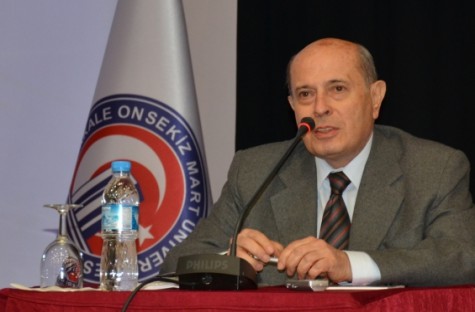Fatih Akın’s film, which he named as “The Cut”, failed to win any awards at the Venice Film Festival, unlike what some in the Turkish media had hoped for. The main reason behind this is no doubt the fact that he failed to handle this difficult issue as it should have been handled. Additionally, it might be that the jury might have taken into consideration that a film that delves into Armenian genocide allegations on the eve of 2015 is predominantly for propaganda purposes and the jury might have intended not to be included in a political debate.
We recall that other films that reflect Armenian views on genocide were also unsuccessful in the 2000s. Foremost among them is Atom Egoyan’s film “Ararat”. This movie, which was written and produced by Egoyan in 2002, who had earned some awards in the area of art films, failed to win any acclaim due to the horror scenes as well as the convoluted plot of the film. “The Lark Farm”, directed by renowned Italian directors Taviani brothers and based on a book by Antonia Arslan, an Italian writer with Armenian roots, could not receive any awards despite all efforts and failed to gather enough audience.
We see that efforts have been made months in advance to propagate “The Cut”s name in public opinion. First, it was put forward that the film would be shown in Cannes Film Festival, but then it was withdrawn by Fatih Akın. There were some news on the media that this was due to the pressure and threats he received, but no explanation was given as to who had put pressure or made the threats. Just before the Venice Film Festival, news began to surface again about the director receiving threats. Furthermore, Fatih Akın’s statement that he wanted to shoot a film about Hrant Dink but that he could not find any Turkish actor willing to perform this role shows that this threat theme is still being abused.
Regarding the foreign press, commentaries about “The Cut” are generally negative and these reviews pointed out that it would not win any awards in the Venice Film Festival. Nonetheless, commentaries in Turkey are generally positive and this time, besides the self-identified liberal intellectuals who support the genocide allegations wholeheartedly, it can be observed that columnists from major newspapers have praised the movie and have expressed they would like the movie to be released in Turkey. Keeping in mind the attention “The Cut” received, it is hard to explain why another Turkish film accepted to the Festival, “Sivas” by Kaan Müjdeci, could not draw much attention. For a film to be worthy, does it have to have a political message or a political attribute in the eyes of these columnists? By the way, we are pleased to indicate that “Sivas” was awarded the Special Jury Prize, while “The Cut” could not win any awards.
For the centennial of the events of 1915, Armenia is putting in an all-out effort in order attain broad recognition for the genocide allegations. A state committee, set up for this purpose and led personally by Serzh Sargsyan, is planning the activities that will serve this purpose. The failure of “The Cut” in Venice serves as a bad start for the activities planned to be carried out regarding the centennial of genocide allegations.
© 2009-2025 Center for Eurasian Studies (AVİM) All Rights Reserved

ARMENIAN GENOCIDE FILMS FAIL TO WIN ACCLAIM
THE FAIRYTALES OF BOGHOS
AUSTRIA AND LUXEMBURG: EFFORTS TO REPAIR RELATIONS




























